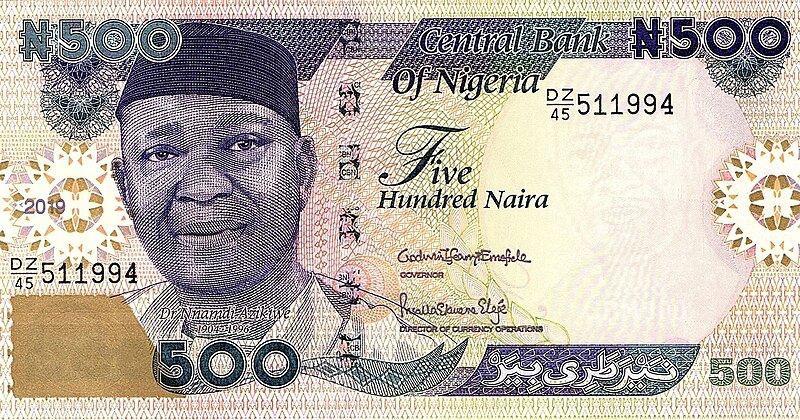The Central Bank of Nigeria, or CBN, issuing slow forex disbursements to BDCs, which has resulted in a surge in demand for dollars from banks and end users in the parallel market. This has caused the Naira to fall by 23% against the dollar last week, marking the worst weekly performance of the Naira since February.
Currency dealers and analysts were unsure about the Naira's fortunes this week, citing the pace and speed of CBN intervention as a determining factor.
However, on Friday, the CBN intervened in the official Nigeria Foreign Exchange Market, or NAFEM, saving the Naira. As a result, the Naira appreciated in the parallel market.
Following The Naira last week declined by N285 (25%) over the course of four days, to N1,405 per dollar on Thursday, April 25th, after two months of continuous growth to N1,140 on Friday, April 19, from N1,1,820 per dollar on Wednesday, March 21.
The Naira fell by N169.24 (9.9%) to N1,339.23 per dollar on Friday, April 26, last week, from N1,169.99 per dollar on Friday, April 19, in line with the similar pattern in the official market.
According to Financial Vanguard's findings, a number of reasons, including shrewd behavior fostered by the parallel market's cheaper exchange rate, contributed to the Naira's gradual decline in value.
Since the CBN started selling dollars to Bureaux De Change, or BDCs, the exchange rate on the parallel market has been less than the currency rate on the formal market. For instance, on Friday, April 19, the official rate of N1,234.49 per dollar was N64.5 higher than the parallel market rate of N1,120 per dollar.
Banks swarmed the black market, purchasing dollars at the lower rate and resold them to their clients at the higher official exchange rate, in an attempt to take advantage of this disparity.
Certain forex end-users also purchased dollars on the black market, placed them in their domiciliary accounts, and then sold them to the banks at an official rate that was higher, imitating the actions of the banks.
Currency dealers claim that this practice led to a massive demand for dollars on the black market, which caused the Naira to depreciate by 25% over the course of four days last week.
Dealers in currency also mentioned the the rate at which the CBN is paying out dollars to BDCs. They observed that BDCs receive dollar disbursements in little amounts; some BDCs do not receive dollars for almost two weeks following naira payments to the central bank.
In this market, you should purchase low and sell high.
The investigation also showed that while FPIs and Foreign Portfolio inflows decreased, the situation was made worse by the CBN's lack of participation in the official market for a few weeks.
Dr. Aminu Gwadabe, President of the Association of Bureaux De Change Operators of Nigeria, confirmed this to Vanguard, saying:
"There were two factors that contributed to the depreciation of the dollar." First, because the open (parallel) market rate is consistently lower than the interbank market rate, individuals were purchasing from it, depositing the money into their domiciliary accounts, and then selling it on the interbank market.
The rise of Person-to-Person (P2P) trading, which involves margin trading and hedging, is the second cause.
Following Binance's demise, new platforms emerged. You also realize that all of the activity on those platforms is entirely speculative.
Naira depreciation is the only way for companies like Binance to turn a profit because

Comments
Post a Comment